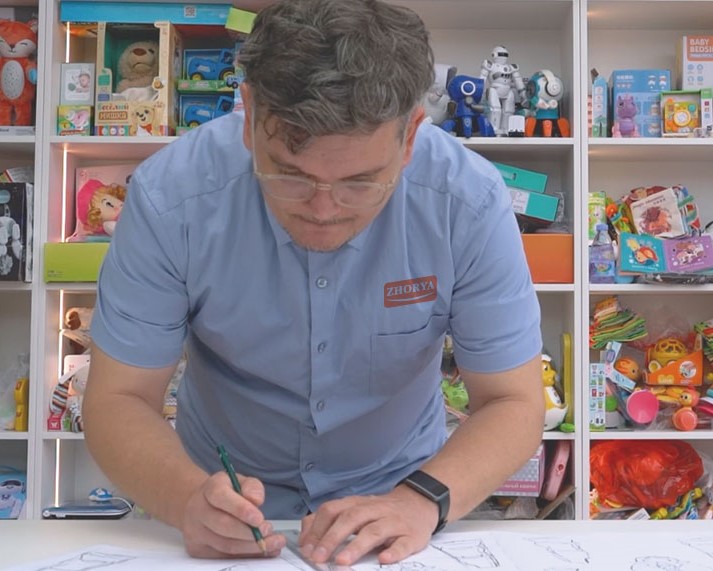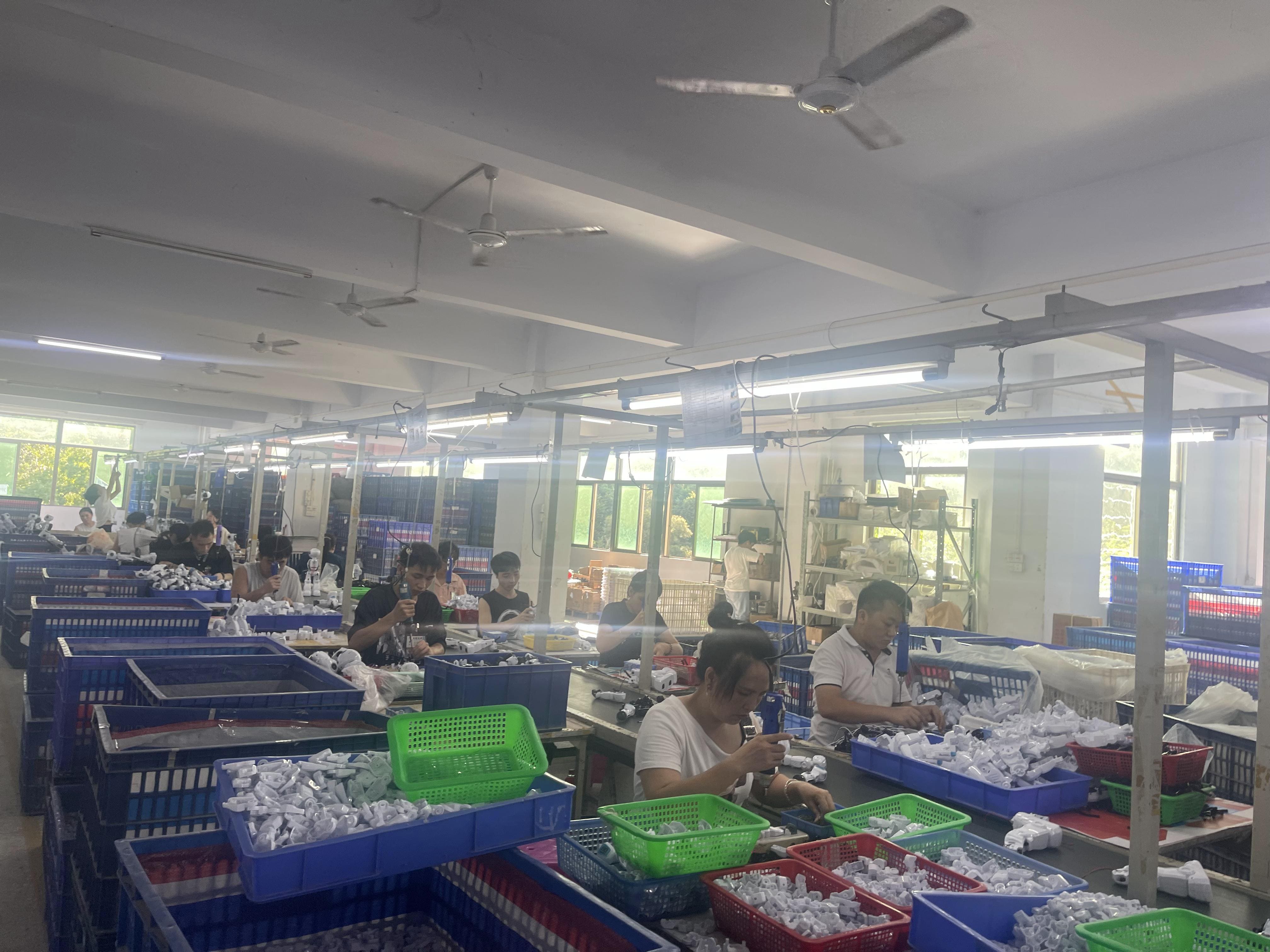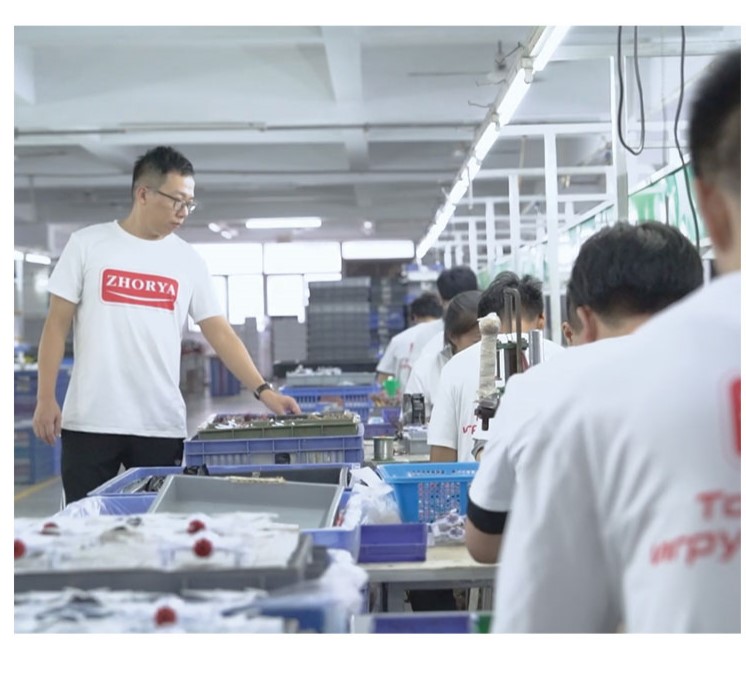English
The Complete Toy Manufacturing Process: A Guide for Retailers and Wholesalers
The toy manufacturing process is a crucial aspect of the toy industry that impacts not only product quality but also how toys reach customers. For toy retailers and wholesalers, understanding the manufacturing process is key to ensuring the products they sell meet both consumer expectations and regulatory standards.
In this blog, we will take a deeper look at the toy manufacturing process, from initial concept and design to final delivery. Whether you're a toy retailer, wholesaler, or just a buyer looking to understand the industry better, this guide will provide insights into the entire journey that toys take before they hit the shelves.
1. The Concept and Design Phase: Turning Ideas into Reality
Every toy begins as an idea. The first step in the toy manufacturing process is the concept and design phase, where manufacturers work with designers, engineers, and other experts to create a prototype based on market demand or consumer trends.
Key Elements of the Design Phase:
- Market Research: Manufacturers analyze current trends, target demographics, and customer preferences to ensure the product fits market demands. This stage often involves focus groups, surveys, and online research.
- Concept Sketching: Designers create initial drawings, brainstorming different features, sizes, colors, and functionalities.
- Prototyping: Once the concept is solidified, manufacturers create a prototype using materials similar to those that will be used in the final product. This allows the team to test functionality and design before moving forward.
For retailers, staying on top of toy design trends is essential for offering products that meet the tastes and expectations of consumers.

2. Material Selection: Quality and Safety Come First
Selecting the right materials for toy production is one of the most critical steps. The materials must be safe, durable, and compliant with local and international toy safety regulations. Materials typically used in toy manufacturing include plastics, metals, fabrics, and electronics.
Considerations for Material Selection:
- Safety Standards: Regulatory bodies, such as ASTM in the U.S. and EN71 in the EU, set specific safety guidelines that toy manufacturers must follow to ensure the products are safe for children. Materials must be non-toxic, lead-free, and meet fire safety regulations.
- Durability: Toys need to withstand rough play, and manufacturers often test materials for strength, flexibility, and wear resistance.
- Sustainability: Many manufacturers are turning to eco-friendly materials, such as biodegradable plastics, to meet the growing demand for sustainable toys.
For retailers, stocking products made from high-quality, sustainable materials ensures customer satisfaction and trust, while also helping to comply with safety standards.
3. Prototyping and Testing: Refining the Product
Once a design has been finalized and the materials selected, manufacturers create a detailed prototype of the toy. This prototype is essential for further testing and refinement.
Types of Testing:
- Safety Testing: Toys are subjected to a series of tests to ensure they meet global safety standards. This includes choking hazard tests, small parts tests, and tests for toxic substances.
- Durability Testing: Prototypes undergo stress tests to check how well the toy holds up under real-life play conditions, including bending, dropping, or chewing.
- Performance Testing: If the toy involves electronics (e.g., RC toys, light-up toys, or battery-operated toys), functionality is tested to ensure all components work as intended.
For toy retailers, understanding the importance of testing can help ensure that they only sell toys that meet safety and performance expectations.
4. Mass Production: Scaling Up for Market Demand
Once the prototype passes all tests, the toy enters the mass production phase. This stage involves setting up manufacturing lines to produce large quantities of the toy.
Steps in Mass Production:
- Tooling and Molding: Manufacturers create molds to shape plastic and metal parts, or tools for assembling other components. These molds are often made from steel to handle high-volume production.
- Injection Molding: This process involves injecting molten plastic into molds to create the main components of toys. This is especially common in plastic toys and RC vehicles.
- Assembly: After individual parts are molded, they are assembled into finished products. This can involve machines or manual labor, depending on the complexity of the toy.
For toy wholesalers, understanding the production timelines is crucial for managing inventory and meeting customer demand.

5. Packaging: Protecting and Presenting the Toy
The packaging is often the first thing consumers see, making it a critical aspect of the toy manufacturing process. Not only does packaging protect the toy during shipping and handling, but it also serves as an important marketing tool.
Packaging Considerations:
- Branding: Packaging design is aligned with the overall branding of the toy company, helping attract attention on store shelves.
- Safety Information: Packaging includes important safety labels, age recommendations, and product usage instructions.
- Eco-Friendly Packaging: Many toy manufacturers are transitioning to sustainable packaging options, such as recyclable or biodegradable materials, to appeal to environmentally-conscious consumers.
For retailers, the appearance and information provided on the packaging can significantly impact purchasing decisions, making it crucial to stock products with clear, appealing packaging.
6. Quality Control: Ensuring the Best for the Customer
Quality control (QC) is a vital part of the toy manufacturing process. During QC, toys are checked for defects, design flaws, or issues with packaging. This is done at various stages of production, including during molding, assembly, and packaging.
Key Quality Control Checks:
- Visual Inspections: Looking for issues with color, finish, and overall appearance.
- Functional Tests: Ensuring that all electronic components, such as lights, sounds, or motors, are functioning correctly.
- Safety Compliance: Double-checking that all toys meet regulatory safety standards and are free from harmful substances.
Retailers can ensure that they are offering high-quality toys by choosing suppliers with a strong commitment to QC standards.

7. Shipping and Distribution: Delivering Toys to Retailers
Once toys are manufactured, they are packed into shipping containers and transported to retailers or wholesalers. Distribution can take place via air, sea, or land, depending on the distance and urgency of the order.
Shipping and Distribution Considerations:
- Lead Times: Manufacturers and retailers should be aware of lead times to avoid delays in product delivery, especially during peak seasons like the holidays.
- Logistics Partners: Reliable shipping and distribution partners are key to ensuring that toys arrive in good condition and on time.
- Customs and Importation: For international shipments, understanding customs regulations and import duties is essential to avoid delays.
For toy wholesalers, managing distribution channels and ensuring timely deliveries is crucial for maintaining a smooth supply chain and satisfying customer demands.
Conclusion: A Streamlined Process for Success in Toy Retail
The toy manufacturing process is multifaceted, involving careful design, material selection, testing, production, and distribution. By understanding these stages, retailers can ensure they offer products that meet safety standards, are high-quality, and appeal to a wide range of customers.
At Zhorya, we recognize the importance of stocking toys that are safe, durable, and in line with market trends. Whether you're looking for light-up toys, RC vehicles, or other innovative toy categories, we provide a wide selection of toys that meet both customer expectations and industry standards.
If you're a toy retailer or wholesaler looking for a reliable partner for your inventory needs, Zhorya is here to help you stay ahead of the competition. Contact us today!